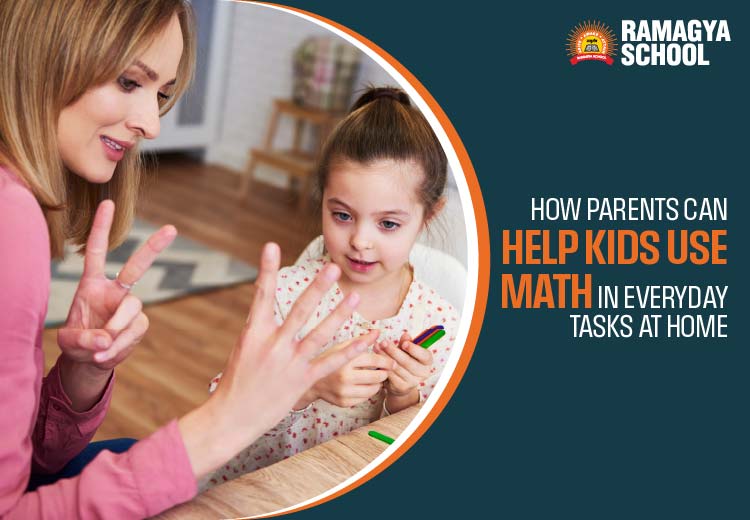Every child feels emotions in a different way even though they don’t necessarily have the words to convey their feelings. In today’s fast-moving world, children are under more pressure than we think, be it academic expectations and competition, social resentments and, sometimes, loneliness.
As parents or caregivers, it’s our duty to spot these signs before they become serious and provide emotional support. Understanding how to reduce stress of kids, providing continuous mental health support and stress management techniques can make kids feel at ease, secure and respected.
Also read: Building Strong Minds and Bodies: A Look at the Approach to Student Wellness
Why Emotional Support Matters
Children who are emotionally supported develop into adults who are more confident, calm and expressive. They learn to handle challenges instead of being afraid of them. When kids feel safe and comfortable in sharing their issues they build trust, not only in others, but in themselves.
Ignoring a child’s emotional needs does not make problems disappear. In fact, Stress can build up in many ways like:
- Irritability or anger
- Sudden silence or withdrawal
- Losing interest in things they once enjoyed
- Headache, stomach pain, or difficulty in sleeping
This is why mental health support is equally important as physical health.
Signs Your Child Might Be Stressed
Before you start looking at ways as to how to reduce stress of kids, you should observe such signs:
- Difficulty concentrating
- Avoiding school or studies
- Getting upset easily
- Asking for extra reassurance
- Being overly quiet or emotional
These are gentle signs that they’re struggling within.
Simple Ways to Support Your Child Emotionally
- Listen Without Judging
Sometimes, children don’t just need solutions. They simply want somebody to listen.
- Put your phone away.
- Sit beside them.
- Let them talk freely
If they feel heard, they feel valued and appreciated.
- Teach Them to Identify Feelings
Encourage them to sense their emotions: “Are you feeling sad, angry, confused, or scared?”
This allows them to understand their feelings, instead of becoming overwhelmed.
- Keep Communication Open
Ask gentle questions:
- “How was your day?”
- “Is something troubling you?”
- “Do you want to talk about what happened?”
Small, regular conversations help build trust.
- Encourage Hobbies and Play
Playing is a natural method of stress management. Activities like drawing, dancing or playing sports allow children to express their emotions and let go of tension.
- Maintain a Routine
Food, sleep and screen time must be in sync. A good routine keeps the body and mind in a calm state.
- Praise Effort, Not Just Results
Enjoy progress instead of perfection:
- “You tried your best.”
- “I’m proud of how hard you worked.”
This boosts confidence and decreases the fear of failing.
- Teach Simple Breathing Exercises
A simple breathing practice can help reduce stress immediately:
- Inhale for 4 seconds
- Hold for 2 seconds
- Exhale for 6 seconds
This helps to calm the mind, ease stress and anxiety.
How to Reduce Stress of Kids Through Everyday Habits
- Family meal time without screens
- Playing outside at least for 30 minutes per day
- Limiting homework load whenever possible
- A relaxing bedtime routine that includes storytelling
- Encourage sharing feelings or journaling
These daily routines are natural ways of stress management, creating an emotional balance.
When to Seek Professional Mental Health Support
If stress starts affecting your child’s sleeping, eating, school performance, and social interactions, it’s okay to seek assistance with a counselor or child psychologist. Asking for help doesn’t make you weak. It shows that you are responsible and that you care.
Just like we go to a doctor for a fever we should seek mental health support when the stress becomes too heavy.
Conclusion
Helping children emotionally isn’t difficult. It’s about being patient, present and gentle. If children feel loved and supported by their parents, they can trust themselves and go ahead with confidence. By taking small, consistent steps to help reduce the stress of kids, provide regular mental health support and mindful stress management, we can assist them to build strength, resilience and joy.
Because sometimes, the quietest child is the one who needs us the most.
FAQs
Q1. How can I tell if my child is stressed?
Notice changes like being more quiet, getting upset easily, not enjoying things they liked before, or trouble sleeping. These signs show they may need emotional care.
Q2. How often should I talk to my child about their feelings?
Try to talk a little every day. Even a short 5 to 10 minute conversation helps them feel supported.
Q3. What if my child doesn’t want to share their feelings?
Do not push. Stay calm, stay close, and show that you are ready to listen whenever they feel safe to talk.
Q4. Can hobbies help children reduce stress?
Yes. Drawing, dancing, reading, playing outside, or any hobby helps children relax and express emotions.




